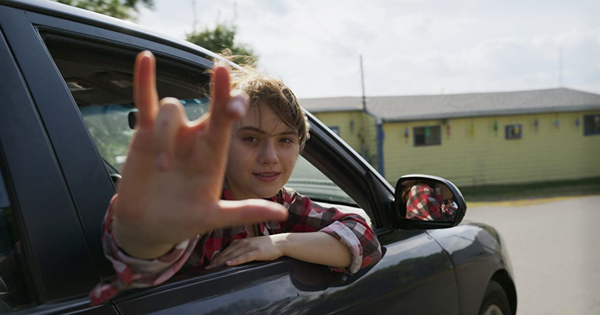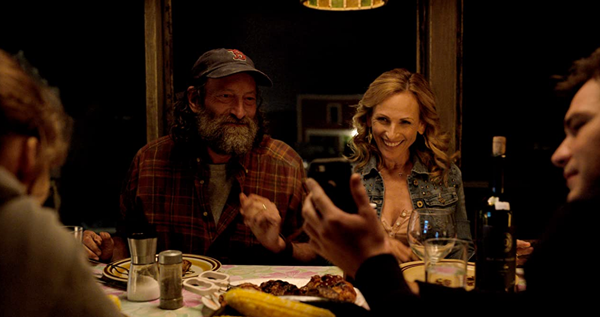
A remake of a French film, CODA was given the award for Best Picture at the 2022 Academy Awards, surely the only memorable thing to happen during the ceremony. Jabs aside, the word “coda” can refer to the ending or final segment of a piece of music. It can also be an acronym for “child of deaf adults,” which makes CODA the perfect title for this heartwarming, feel-good and formulaic film about the only hearing daughter in a deaf family who discovers a love of singing.
The Rossis are a deaf fishing family made up of Frank and Jackie (Kotsur and Matlin) and their son Leo (Daniel Durant). The youngest is their 17-year-old-daughter Ruby (Jones), the only member of the family born with hearing. The film opens with Frank, Leo and Ruby on their fishing boat early in the morning, with Ruby singing along to Etta James’ “Something’s Got a Hold on Me.” At the docks, Ruby acts as interpreter for her father and brother to sell their catch at a fair price. Then, stinking of fish, Ruby goes to school where she is made fun of for her smell and for having deaf parents. When she sees the boy she likes signing up for choir, she impulsively signs up too, even though she’s never sung in front of other hearing people before.
Wouldn’t ya know it, Ruby can really sing, and her choir instructor (Eugenio Derbez) picks her out of the group as something really special. The story is beat-for-beat coming-of-age boilerplate, made only slightly new in that it revolves around a deaf family, a woefully underrepresented group that gets a chance at some real humanizing representation here, while also still being kept down by a narrative told from, and for, a hearing perspective.

CODA is Ruby’s story, and while it is great that her parents and brother are all played by deaf actors (Kotsur won a Best Supporting Actor Oscar for his endearing portrayal), the film still struggles with the conflict inherent in being a movie about deafness and a movie about singing. Because ultimately, CODA isn’t a movie for deaf people so much as a movie for hearing people to feel inspired by a young woman caught between caring for her deaf family and chasing her dreams.
For much of the movie, Ruby’s embarrassed by her family and sick of their reliance on her (a gross misrepresentation of the independence of deaf people to be sure), and the film never truly confronts her feelings towards them, putting the onus of acceptance and growth on the family, not her, often treating their deafness as a burden that must be overcome. It’s drama for drama’s sake, so it rings untrue, but it’s also potentially harmful.
Does that mean I didn’t choke up a couple times during the film’s coda? Of course I did, even as someone who has come to realize they hate singing movies. (Seriously, Ruby listens to Etta James, The Clash, Marvin Gaye, and The Shaggs, of all bands, yet she and everyone in the film sings like Christina Aguilera performing the national anthem?) Because for all its clichés and for all it gets right and doesn’t get right about being deaf, CODA is a very well-made and well-acted version of a very standard teen drama. But, Best Picture . . . ?
CODA is streaming on Apple TV+.













